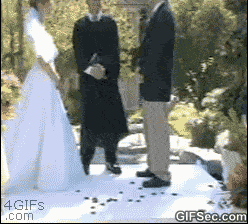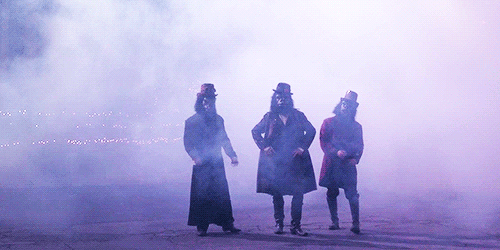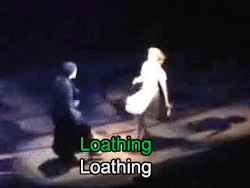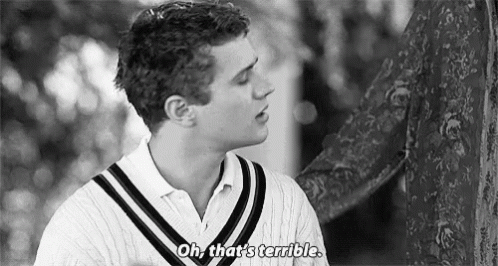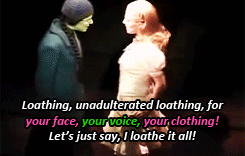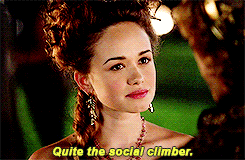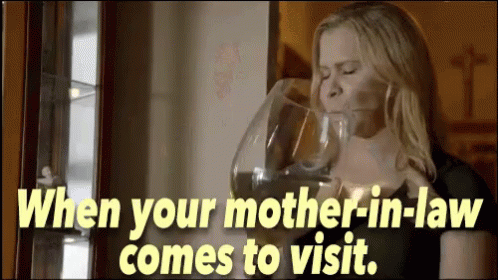I'm staying at my future mother-in-law's again, because I'm effectively homeless until the 1st of July. This is having a predictable effect on my productivity. By the time I finish this part I'll be 50% through the book, which is exciting.
Chapter 17
Anatole is all dressed up for his elopement. He makes a solemn speech of goodbye to his groomsmen, which is just him being dramatic since they're all coming with him, at least to the wedding, which I'm really hoping doesn't happen.
They prepare to go and grab a cloak so that Anatole can scoop up Natasha ad carry her to the sleigh as soon as she appears outside. The groomsmen have some experience with elopements, and expect that she will appear in whatever she's wearing, and if there's any delay, she'll start doubting her decision, as she should.
They all set off, and arrive at casa de Rostov, where a maid says Natasha will be right out, and that Anatole should come into the courtyard to meet her. When he gets there, he's greeted by Gabriel, Marya Dmitrievna's gigantic footman, who insists that Anatole comes to see "the mistress". I'm so glad he's here. Dolokhov realises they've been betrayed and, having wrestled his way past a porter who was trying to lock the courtyard, grabs Anatole and pulls him back to the troyka (17th century uber).
Chapter 18
Marya Dmitrievna found Sonya weeping in the courtyard, made Sonya reveal everything, and then intercepted and read the note to Natasha. She calls her a shameless-good-for-nothing, which she is, but, to be fair, how many of us weren't at seventeen?
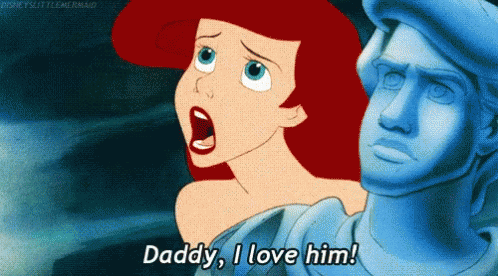
I feel like Anatole is a deconstruction of the fairy-tale prince. Mary thought they were doing Beauty and the Beast, with her as the beast. Amelie thought she was Cinderella and Anatole was Prince Charming, and Natasha seems to think she's Ariel. I don't know what Helene is - some weird incestuous shit like Cruel Intentions (I know I said Dangerous Liaisons before, but I think the incest was specific to Cruel Intentions). Anyway, Marya locks Natasha in and sends Gabriel to wait for their "guests". She's annoyed that they got away, and eventually goes to see Natasha. Sonya's still sitting in the corridor, sobbing and begging to talk to Natasha. Natasha is lying in a dramatic swoon, also sobbing and vowing to die. Marya tells Natasha off, and points out that Count Ilya will probably want to challenge Anatole to a duel, and then where will they be? I don't think Marya knows it's Anatole because she doesn't actually use his name.
Natasha shouts at Marya for interfering and Marya, fairly, points out that literally no one stopped Anatole walking up to the front door and announcing himself as a suitor. Even though Natasha was/is engaged (unclear if Andrew got the message), the whole year was a cooling off period. Natasha starts crying again, "with the despairing vehemence with which people bewail disasters they feel they have themselves occasioned". Marya tells her off some more - nevermind Ilya, what did she think Nikolai would do? - but eventually points out that they don't need to tell Ilya if Natasha herself agrees to forget the whole thing. Natasha doesn't respond.
The next day, Count Ilya Rostov comes back in time for lunch, in a good mood. Marya claims Natasha has been unwell, but a doctor has been called for her. Natasha is actually sitting and sulking while she pines for Anatole. She perks up a bit when her father arrives, but only for as long as she thinks it might be Anatole arriving. She agrees that she's "ill" and says nothing has happened to her betrothed. Count Ilya works out that something must have happened while he was away, but he can't bear the thought that anything disgraceful might have happened to Natasha, and also values his own "cheerful tranquillity", so he doesn't ask.
Chapter 19
Helene has arrived in Moscow and so Pierre has intended to be elsewhere. "The effect Natasha has on him" causes him to leave even faster, so he goes to see Joseph Alexeevich's widow, who has some papers for him to inherit. When he gets back, there's a letter from Marya awaiting him, asking him to come and discuss Andrew and Natasha. His feelngs for her are stronger than he feels they should be for a friend's fiance, so he's been avoiding her, but here's another way fate is throwing them together.
As Pierre heads to Marya's, he's greeted by Anatole. Pierre is envious of the way Anatole manages to live completely in the moment and always for his own pleasure, which probably doesn't seem like a holiday to someone as anxious as Pierre. He goes inside and Natasha is sitting there with a face like a slapped arse. Tolstoy actually says "thin, pale, and spiteful face" but I think my description works too. She leaves the room when he walks in. Marya catches him up on events. Pierre is shocked, especially since he knows Anatole is already married and also a prat. He can't quite understand how the Natasha he's known since childhood has become so base and cruel, and realises she's just like Helene. He feels so bad for Andrew that it magnifies his current disgust for Natasha even further. He doesn't realise that what she's actually feeling is not contempt and calm dignity, but despair, shame, and humiliation. She's just got a nasty case of resting bitch face.

Pierre informs Marya that Anatole is already married, and she insists that they must tell Natasha, who is still waiting for Anatole. She also goes on to explain why she's called Pierre. Basically, she's still hoping to keep the whole thing a secret and prevent Andrew, Nikolai, or Ilya from challenging Anatole to a duel. Since Pierre is Anatole's brother-in-law, she's hoping Pierre can tell Anatole to effectively, fuck off out of the city. He promises that he will.
On Pierre's way to the drawing room, he runs into Count Ilya. Ilya has been told that Natasha has rejected Andrew, but nothing else. He's not upset that the marriage won't happen, especially with Old Nikolai's attitude, but he is upset that she didn't speak to either of her parents first. Sonya interrupts them to tell Pierre that Natasha is asking for him. When he arrives, it turns out that she is refusing to believe that Anatole is already married and wants Pierre to confirm it in person. When he does, she asks if Anatole is still hanging around (he is), then asks to be left alone.
Chapter 20
Pierre doesn't stay for dinner, but heads out to look for Anatole. He can't find him, so heads to the club. Everyone's gossiping about Anatole's abduction of Natasha, and asks him if it's true. Pierre, in turn, asks about Anatole. He hears that Anatole is coming to dine at the club, but he doesn't, so Pierre heads home. I hope this prompts him to fully divorce Helene, kill two birds with one stone.
Anatole is actually dining with Dolokhov, doing a bit more plotting. His initial goal is to speak to Natasha. By the time Pierre gets home, he finds Anatole meeting with Helene, to plot even further. Pierre marches in, ignoring Helene who he despises even more than previously. Helene doesn't realise this immediately and starts trying to involve him in their plots, because she's just that much of an idiot, I guess. Pierre tells her that wherever she is there is vice and evil, and drags Anatole out of the room. Helene tries to tell him off but gets ignored again.
Pierre accuses Anatole of trying to elope with Natasha, and Anatole says he doesn't care to answer questions in that tone.

Pierre doesn't punch him, but he does shake Anatole until his teeth rattle. Anatole asks what this is all about, because he is also an idiot, and Pierre says he doesn't really know what's keeping him from bashing Anatole's head in right now. I don't either. It would save a lot of trouble, we're not even halfway through the book. Pierre takes Natasha's letters off Anatole, and tells him he must get out of Moscow and not breathe a word to anyone about the whole affair. Then he lectures Anatole on the basics of having a conscience, considering other people, and not ruining the lives of innocent young girls. He tells Anatole that he should amuse himself with women like Helene who know what they're getting into, which is a bit on the nose considering the incest rumours. Anatole starts whinging that he's upset that Pierre would dare say such things to him. He doesn't say that any of it's untrue, just that he doesn't like Pierre categorising it as immoral.

Pierre does apologise and offers Anatole money for the journey, but storms out when Anatole pushes it with a smarmy grin. Anatole leaves for St Petersberg the next day.
Chapter 21
Pierre goes to tell Marya the good news, only to find that Natasha has poisoned herself with arsenic. She lost her nerve after the first mouthful and woke Sonya up to get help. She's safe, but feeling too ill to be moved. People are still gossiping at the club, but Pierre insists that the only thing that happened was Anatole proposing and Natasha rejecting him. Pierre is dreading having to explain all this to Andrew on his return. Old Nikolai, on the other hand, has been hearing all the rumours from Amelie, and has read Natasha's letter to Mary in which she called off the engagement. Amelie steals it, and it is given to Andrew as soon as he arrives in Moscow. Old Nikolai also tells him all the rumours about Natasha and Anatole. Andrew calls for Pierre the next day.
Pierre has been expecting to find Andrew in a similar state to Natasha, but he doesn't seem to be. Mary is trying to hide how pleased she is, and tells Pierre that Andrew had expected it. Pierre still holds out hope that the engagement might not be truly over - I guess he thinks Andrew is good for Natasha and vice-versa. Andrew has been having an animated conversation with his father, but seems stressed as soon as Pierre arrives. Pierre realises that Andrew is having arguments about Speranski in order to avoid thinking about his own problems, because he does something similar. When Andrew is finally done with that conversation he takes Pierre aside and asks if the rumours about Anatole and Natasha are true. He says "both true and untrue", and Andrew gives him Natasha's letter and portrait, asking Pierre to return them. He learns that Natasha is still here, but at death's door, and that Anatole has left. He does a nasty laugh when he learns that Anatole was already married, and, tbh, fair enough. Pierre asks if Andrew is sure they can't start over, and Andrew says he is, and asks that Pierre never speak of Natasha again.
Chapter 22
Pierre returns to the Rostovs with Natasha's letter and portrait. The count is at the club and Natasha is still in bed, so he goes to talk to Marya. Sonya comes in to inform them that Natasha insists on seeing Count Peter Kirilovich, whoever that is. It turns out that that's Pierre and Natasha is being weirdly formal. She asks Pierre to ask Andrew to forgive her. She insists that she knows everything is over, she's just sorry. Pierre feels sorry for her, but has to ask if she loved Anatole. She says she doesn't know and starts crying again. I feel bad for her too. She's just young and stupid, and I think everyone can be accused of that. Pierre comforts her and asks her to think of him whenever she needs a friend. She drops a bit too far into self pity again, claiming that everything is over, and Pierre tells her not to be ridiculous. He tells her that if were the handsomest, cleverest, and best man in the world he would be on his knees begging for her hand right now.

They both burst into tears of tenderness and gratitude (Natasha) or joy (Pierre) and leave the room. Pierre goes back to his carriage, but is at a loss as to where to go now. He decides on home, eventually. He spends the journey gazing up at the sky because everything else seems sordid compared to the feelings he's having. Here, he sees the comet of 1812. The comet has been considered a portent for the end of the world and other such unlucky things, but Pierre feels that it understands him.
It has travelled all the way across the galaxy to find itself here.


